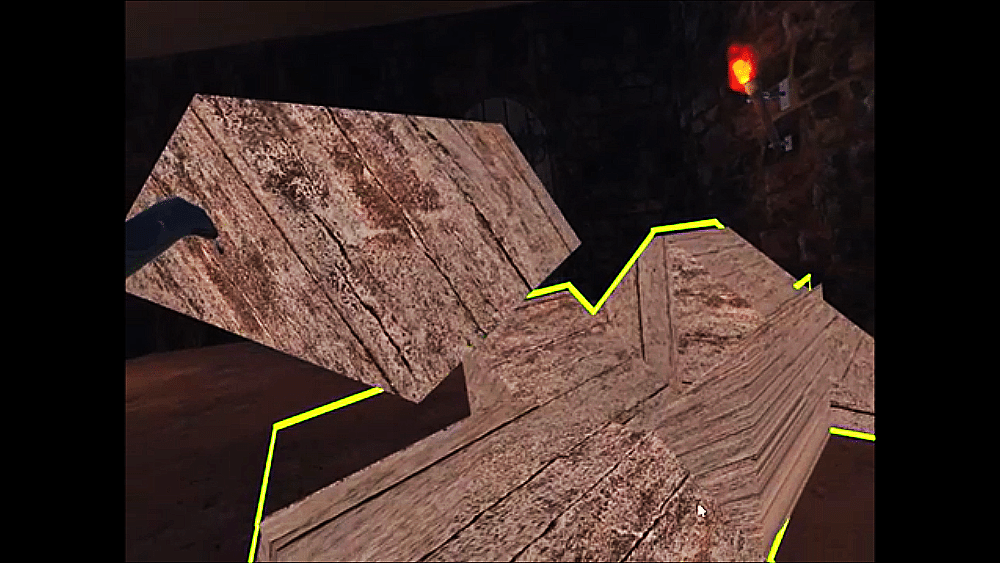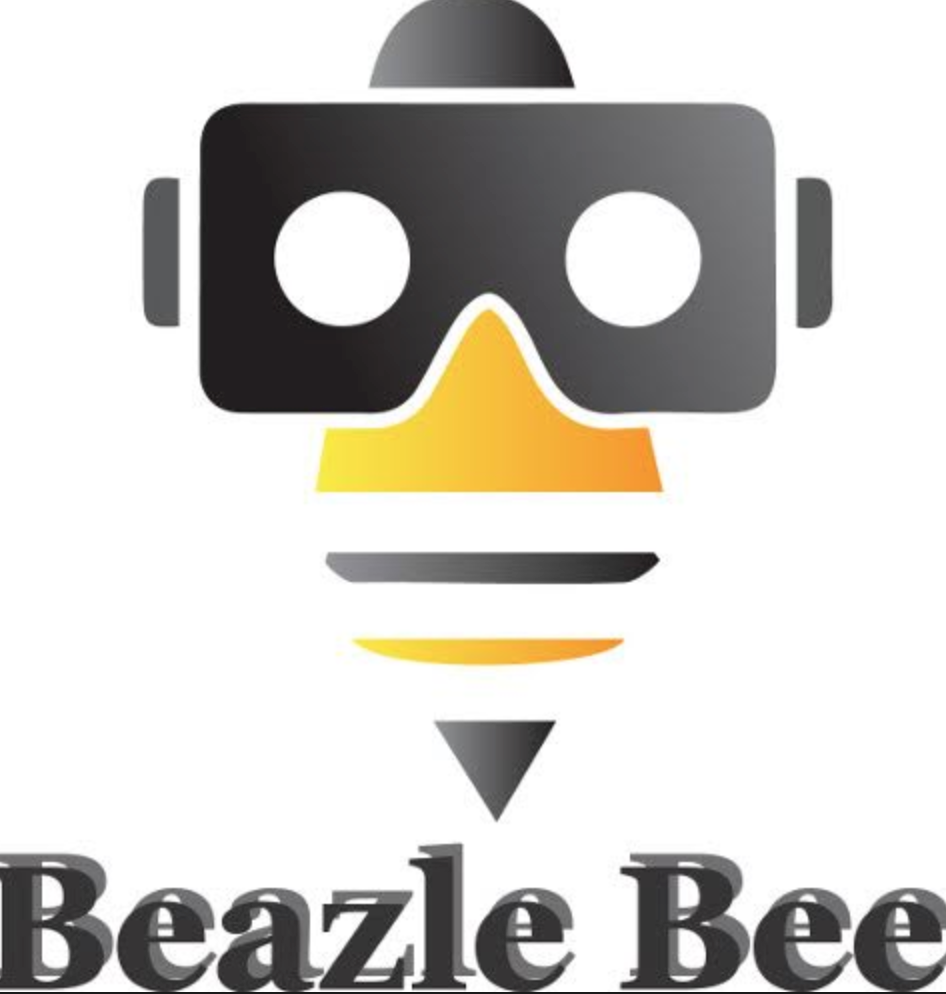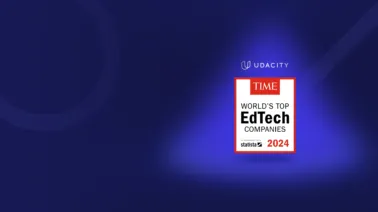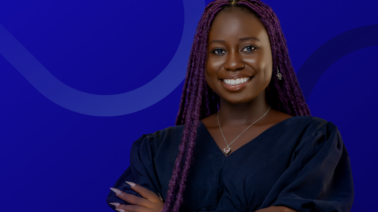
A scene from TangramsVR, an immersive VR puzzle game from Beazle Bee
We recently featured a story about Kristin Dragos, a former elementary school English teacher in Phoenix, AZ, who turned her interest in technology into an incredible new VR career with the start of her own independent game studio. We were so intrigued by her story, we just had to find out more. Here’s what we learned!
As Kristin entered the final term of her VR Developer Nanodegree program, she was excited by the possibilities VR represented—both creative and professional. With a strong portfolio of projects ready to showcase, and a host of ideas about how she could apply her new skills, she started exploring job opportunities in the VR sector. What she discovered was a young industry plagued by mismatched roles and requirements, widespread uncertainty around where the industry was headed, and perhaps most challenging of all, a distinct lack of other people like her—a woman pursuing a career in VR.
Undaunted by her initial inability to find a career role in VR, she was inspired to strike out on a truly impressive path of her own. We spoke with Kristin to find out how she took this incredible leap.
As you came to the end of your Nanodegree program, what were your first impressions of trying to enter the VR industry?
The VR Developer Nanodegree program really spurred my passion for VR, and I was very keen to jump into the industry with both feet. I was consuming lots of new VR content, practicing my new skills, and had started exploring open job opportunities. I was really excited to get started, but I quickly made a discovery—for such a new and groundbreaking industry, there were a surprising amount of obstacles that already seemed to be in my way.
Can you tell us more about the challenges you faced during your job hunt?
I really wasn’t getting many responses from the applications I submitted and the recruiters I tried to contact. This made me wonder what my resume could be missing, and I started to ask for feedback to find out what barriers I was facing. One hiring manager followed up, saying that he was looking for a candidate with 5–10 years of experience. This struck me as crazy! VR, as we know it, is still relatively new and still evolving, so finding someone—anyone—with that much experience would be almost impossible! This wasn’t so much an obstacle; more a barrier that seemed impossible to climb. It really felt like I was facing a legacy system of recruitment that hadn’t effectively adapted to the needs of the VR industry I hoped to be a part of.
What were your next steps?
It seemed to me that if recruitment practices were struggling to adapt to the needs of the VR industry, there might also be legacy problems when it came to the kind of VR content being created and the consumers it was being aimed at. I was already aware that, as a woman using and developing VR content, I was very much in a minority. I began questioning why that was the case, and started exploring the industry critically—thinking about what it was offering, what appealed to me personally, and what it was currently lacking. I had some strong ideas about what I thought the VR industry could be, and I increasingly felt there was an opportunity to use these ideas to create something new.
And what were your thoughts on the VR content you explored?
I enjoy playing all sorts of video games with my husband and son, but I found the gaming options for VR extremely limiting. For example, I’ve definitely seen a proliferation of horror-themed content, which can be great, but really isn’t for me. I truly think VR has many more applications than just making people jump with fright. We really have barely begun to imagine what might be possible.
It seemed like the content being produced was driven by a focus on a very narrow segment of consumers. While I definitely identify as a “gamer,” I’m probably nothing like the stereotype associated with that tag, so it felt like VR wasn’t being set up for me. This made me question why there isn’t the VR content out there that really appeals to me or many others.
So you decided to take matters into your own hands …
 Absolutely. In July 2017, I founded Beazle Bee, my very own small independent game studio. I decided that if VR didn’t look as I would like, I had the skills and drive to mold it myself. With Beazle Bee, I’m focusing on the kinds of games and content that I have a real passion for. I aim to create content that goes beyond hardcore VR gamers to reach a far more diverse and mainstream audience.
Absolutely. In July 2017, I founded Beazle Bee, my very own small independent game studio. I decided that if VR didn’t look as I would like, I had the skills and drive to mold it myself. With Beazle Bee, I’m focusing on the kinds of games and content that I have a real passion for. I aim to create content that goes beyond hardcore VR gamers to reach a far more diverse and mainstream audience.
What kinds of new VR content will you create to reach this audience?
Outside of horror, I like a whole range of game genres that aren’t being addressed in VR now. There is also a whole group of people who only engage in casual games like Candy Crush and Bingo Blitz. They’re both hugely popular games that attract people with their addictive simplicity and their social elements. VR really hasn’t ventured into these markets at all and I aim to fix that. I want to explore how we can create more of these casual gaming experiences in VR, and produce content that combines the best of social gaming elements with the incredible advantages of the VR ecosystem.
You also talked about the current VR industry not really representing you as a woman. How do you aim to address that?
There’s definitely a real opportunity to engage more women in VR—both as developers and end users. There are so many possible ways to do that and I’m really interested in exploring different solutions with my studio—discovering what content most appeals and what changes the industry needs to make, to be more inclusive. I’m only at the start of this journey, but I’m excited to work out how to produce engaging content for people like me—and people entirely unlike me—that showcases why everyone should be as passionate about VR as I am!
It’s really interesting to hear more about your vision and objectives for your company, and for broadening the appeal of the VR industry as a whole. At the same time, I’m sure part of your passion for VR comes from simply working with the technology itself. Can you give us an example of a product you created that you loved working on for its own sake?
VR technology offers a unique opportunity to think about our concept of space. For example, one of the games I created, TangramsVR, reimagines the traditional tangram puzzle as something for VR, with players encouraged to shift to a three-dimensional mindset. This approach to development means thinking about some new and really interesting game mechanics that bring something fresh to the VR table.
What keeps you excited about VR development?
I think my entire experience with VR development, from taking my first steps into the VR Developer Nanodegree program, to founding my own company and working on the things that thrill me, has been driven by a passion for technology and a love for challenging myself to try new things. I always want to push myself to try something new, and have tried not to let setbacks get in the way of my vision of what great VR content can look like.
There have obviously been hurdles along the way—from the challenge of staying motivated through the Nanodegree program itself, to the courage I needed to start a company and set to work independently. However, I’ve always kept my focus on creating the content I believe the industry is lacking, and on representing the people the VR industry doesn’t currently represent.
I also really love continuing to learn about VR. With every project I complete with my studio, I make an effort to always learn something new and incorporate it into my next effort. This was an attitude I took from my experience with Udacity—focusing on learning through trial and error, and having the confidence to try something fresh. It’s really important that I’m always growing as a developer, doing something I love, and making an effort to push myself beyond my comfort zones. Working on VR development for my own studio certainly lets me do that!
~
Everyone at Udacity is in awe of the courage and drive Kristin has exhibited in starting her own company! We’re very proud to have played a role in helping her pursue her passion for VR, and we’re very excited to see all the incredible VR content she’s going to create!



